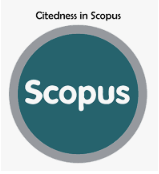Plagiarism Policy
The Elementary Journal upholds the highest standards of academic integrity and originality. To maintain the quality and credibility of published research, the journal strictly enforces a zero-tolerance policy on plagiarism in any form.
Plagiarism Screening Process
- Preliminary Check: All submitted manuscripts undergo plagiarism detection using plagiarism-checking software before the peer-review process.
- Acceptable Similarity Index: The maximum allowable similarity index is 20%, excluding references and commonly used phrases. Manuscripts exceeding this threshold will be returned to authors for revision or rejected outright.
- Types of Plagiarism Considered Unacceptable:
- Direct plagiarism: Copying text, figures, or data without proper citation.
- Self-plagiarism: Republishing substantial portions of the author's previous work without appropriate acknowledgment or citation.
- Paraphrasing without attribution: Rewriting someone else's work without citing the original source.
- Fabrication and falsification: Manipulating data, results, or references to misrepresent findings.
Consequences of Plagiarism
- If plagiarism is detected before publication, the manuscript will be rejected.
- If plagiarism is identified after publication, the article will be retracted, and appropriate notifications will be made to relevant institutions.
- Authors found guilty of plagiarism may be blacklisted from future submissions to The Elementary Journal.
We encourage authors to ensure the originality of their work and adhere to ethical writing practices by properly citing all sources. By enforcing this policy, The Elementary Journal aims to uphold academic integrity and contribute to the advancement of genuine and ethical research.















